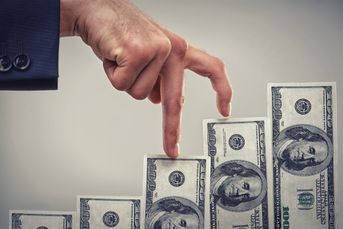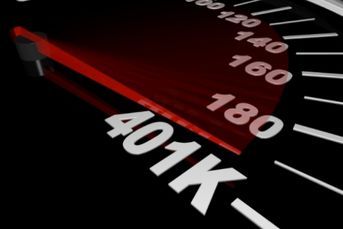U.S. dollar up as Mubarak steps down
 (Bloomberg News): Will resignation put an end to violence in Cairo?
(Bloomberg News): Will resignation put an end to violence in Cairo?
Flight to safety lifts greenback against most counterparts as Egyptian president resigns
The dollar rose against most of its major counterparts as Egyptian President Hosni Mubarak stepped down and handed power to the military, stoking demand for the safety of U.S. assets.
The greenback headed for a third weekly gain versus the euro as Mubarak bowed to the demands of protesters, who are likely to call for immediate elections. The euro remained lower against the dollar as the head of Germany’s central bank resigned. U.S. consumer confidence rose this month, data showed.
“After the Egyptian announcement, the market quickly realized that there is a lot of uncertainty about who is going to take control, how these elections are going to progress and what the next government is going to look like, so you saw risk aversion quickly return,” said Blake Jespersen, director of foreign exchange in Toronto at Bank of Montreal. “The U.S. dollar is gaining modestly from this.”
The dollar appreciated 0.6 percent to $1.3522 per euro at 12:35 p.m. in New York, from $1.3603 yesterday, when it rallied 1 percent. The greenback has gained 0.4 percent this week against the common currency. The dollar advanced 0.4 percent to 83.54 yen. The euro declined 0.2 percent to 112.95 yen.
“Mubarak has decided to waive the office of the presidency,” said Vice President Omar Suleiman in a statement on state television today. “He has instructed the Supreme Council of the armed forces to take over the affairs of the country.”
Protests in Egypt, inspired by the revolt that ousted Tunisian President Zine El Abidine Ben Ali on Jan. 14, sparked concern that tension would spread in a region that holds more than 50 percent of the world’s known oil reserves.
Canadian Dollar
Canada’s dollar rose against all of its 16 most-traded peers as the nation unexpectedly posted its first trade surplus in 10 months and the U.S. trade deficit widened 5.9 percent to $40.6 billion, in line with forecasts. The Canadian currency climbed 1.2 percent to C$1.3380 per euro.
The euro remained lower versus most major peers after a German government spokesman said Bundesbank President Axel Weber will leave office on April 30. A successor will be named over the next week, the spokesman said. The decision ends three days of speculation and takes Weber out of the race to succeed Jean- Claude Trichet as president of the European Central Bank when Trichet’s term expires on Oct. 31.
Dollar Index Gains
IntercontinentalExchange Inc.’s Dollar Index, which tracks the greenback against the currencies of six major U.S. trading partners, climbed as much as 0.6 percent to 78.697, the highest level since Jan. 21. The gauge has risen 0.7 percent this week in what would be its first five-day rally since Jan. 7.
The dollar was poised for a 1.6 percent weekly gain versus the yen, its biggest since Jan. 7.
The Thomson Reuters/University of Michigan preliminary index of consumer sentiment rose to 75.1, the highest level since June, from 74.2 in January, in line with the median forecast of economists in a Bloomberg News survey.
The dollar strengthened beyond $1.35 per euro for the first time since Jan. 21, gaining 0.8 percent to touch $1.3497.
“The reason we’re seeing a decent-sized move like this is because the outlook in the U.S. is better,” said Jens Nordvig, a managing director of currency research in New York at Nomura Holdings Inc. “We’re really pricing in a Fed exit from zero interest rates in the next year.”
Interest Rate
The Federal Reserve has kept its benchmark interest rate at zero to 0.25 percent since December 2008 to support economic growth. Analysts forecast the central bank will raise rates to 0.5 percent by year-end, according to a Bloomberg News survey.
The U.S. unemployment rate dropped to 9 percent and U.S. manufacturing and service industries grew last month, data from the Labor Department and the Institute for Supply Management showed last week.
Australia’s currency slid below parity with the dollar after Reserve Bank Governor Glenn Stevens said policy makers judged it “sensible” to keep interest rates on hold.
Stevens said in parliamentary committee testimony that there was no urgency to boost borrowing costs in the first half of the year, leading traders to cut bets on the amount rates would be increased over the next 12 months. A Credit Suisse Group AG index based on swaps showed they expect 35 basis points in rate increases, down from 41 basis points yesterday.
Australia’s currency fell 0.5 percent to 99.98 U.S. cents, from $1.0044. It dropped as much as 0.8 percent to 99.61 U.S. cents, the lowest level since Jan. 31.
Vietnam devalued the dong by about 7 percent, the most since at least 1993, risking faster inflation to curb the nation’s trade deficit and narrow the gap between official and black-market exchange rates.
The currency slumped 6.3 percent to 20,800 per dollar, from 19,490 yesterday. The State Bank of Vietnam fixed the reference rate for the currency at 20,693 versus 18,932 yesterday, or 8.5 percent weaker. The trading band for the currency was narrowed to 1 percent on either side of the rate from 3 percent previously.
–Bloomberg News–
Learn more about reprints and licensing for this article.






